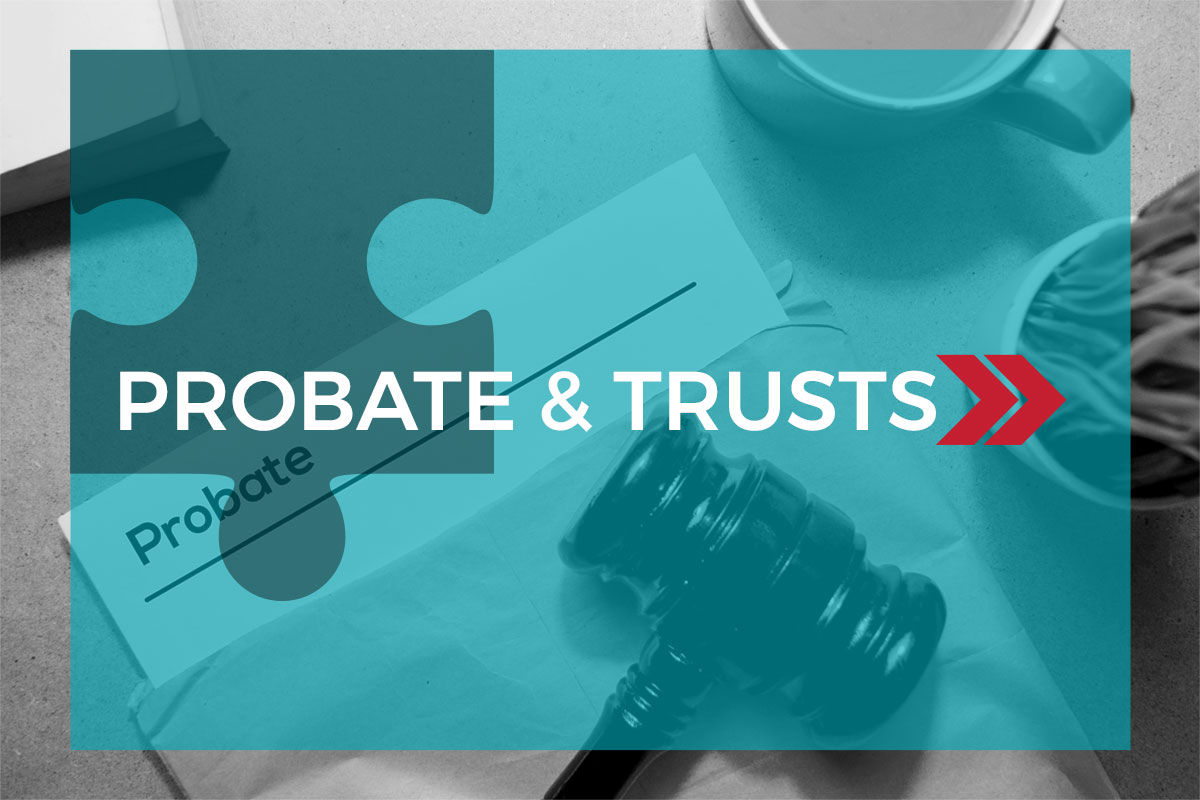WILLS & REVOCABLE TRUSTS
WILLS
Let’s talk about wills. A will says who, gets what, after you die. Easy enough. But it’s important to know that a will only disposes of assets that are in your name alone. It won’t help with most jointly owned property or property that passes by beneficiary designation such as an IRA or a life insurance policy. What’s great about a will is that it’s easy, you sign it, and there’s nothing more to do. Get hit by a bus outside your lawyer’s office; you’re fine. Well… other than getting hit by a bus.
The downside of wills is that after you die, you must go to court to open a probate estate. In order to make the will effective, you must go to court. Going to court invariably means additional time and expense.
REVOCABLE TRUSTS
While wills have infiltrated the plots of movies and books, revocable trusts have certainly not achieved such limelight. Yet there are two big advantages to a revocable trust.
Advantage 1: When you die, your beneficiaries don’t go to court. So, a trust administration is an informal and comparatively quick process.
Advantage 2: If something happens to you while you are alive and you can’t manage your assets, a successor trustee can manage all the assets in the trust for you. You can appoint this successor trustee when you set up the revocable trust. This enables you to avoid guardianship and avoid relying on powers of attorney. We find this is generally very efficient.
Disadvantage: The downside of the revocable trust is that it only works for assets that are in the trust. So after you sign your trust agreement, you then must fund the trust, meaning you have to re-title assets and put them in the trust. As you acquire properties, investments and capital, you’ll need to title them in the name of your trust. This puts responsibility on you to actively maintain your revocable trust. What happens if you don’t do that? If you have a revocable trust, you will have what’s called a pour-over will. A pour-over will says that whatever is not in your trust at the time of your death is added to your trust, but it is required to go through probate. The practical effect is if you have a revocable trust and don’t fund it, you’ve just wasted time and money.
BENEFICIARIES
An important factor for both wills and revocable trusts is that they can be changed whenever you want. If you want to change who your beneficiaries are, add someone, take someone out – you can absolutely do that, whenever you want.
FORMALITIES
There are strict formalities that must be followed in order to properly execute these documents. If you don’t follow these formalities, mistakes can be made which might mean in the end your wishes are not followed. That’s why it’s important to have competent legal counsel do this for you to ensure that these important documents are prepared and executed correctly.
schedule a visit with us to discuss your wills and revocable trusts needs.
Read More ABOUT ESTATE PLANNING ON OUR BLOG
How Can We Help Today?
The Law Office of Finley Stetson is standing by to take your call. Our team is dedicated to providing you quality legal services with a personalized approach. We look forward to assisting you.






